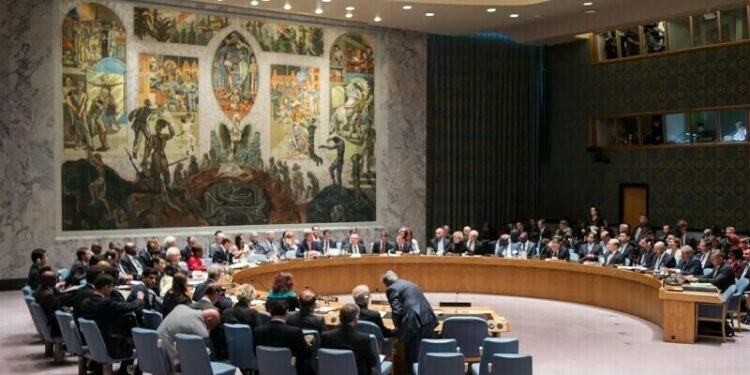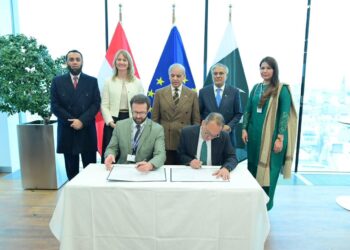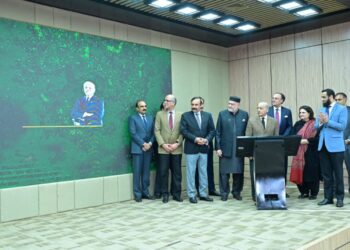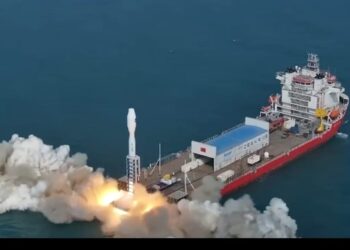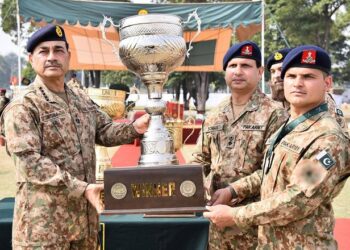Introduction: Pakistan Urges Global Action Against Armed Militancy
In a significant diplomatic move at the United Nations, Pakistan has strongly urged the international community to take coordinated and urgent steps to halt the clandestine transfer of sophisticated weapons to militant groups operating from Afghanistan. These groups, notably the Tehreek-e-Taliban Pakistan (TTP), the Baloch Liberation Army (BLA), and its Majeed Brigade, have been involved in orchestrating deadly attacks on Pakistani soil. Islamabad has raised concerns over the increasing use of advanced weapons by these proscribed outfits, which not only pose a direct threat to national security but also to regional stability.
Diplomatic Address at UN Security Council Meeting
Speaking at a high-level consultative session of the United Nations Security Council (UNSC), Syed Atif Raza, Counselor of the Permanent Mission of Pakistan to the United Nations, delivered a compelling speech during a thematic discussion on “Managing Small Arms and Light Weapons in the UN Sanctions Regime.” The meeting was organized by Sierra Leone and is part of the Diego Aria Formula—a format that allows for informal yet substantive conversations among UNSC members.
Illegal Weapons Stockpiles: A Growing Concern
The Pakistani envoy expressed grave concerns about the billions of rupees’ worth of sophisticated military-grade weapons that were left behind in Afghanistan following the withdrawal of NATO and U.S. forces in 2021. These abandoned weapons, including assault rifles, sniper equipment, explosives, and even night vision gear, have reportedly found their way into the hands of non-state actors.
Raza emphasized that such weaponry is being used by militant groups like the TTP and BLA to execute targeted attacks on civilians, law enforcement agencies, and security personnel within Pakistan. These groups are taking advantage of the unguarded arms caches in Afghanistan, as well as the absence of effective monitoring mechanisms, to further their extremist agendas.
External Support and Regional Destabilization
In a pointed reference to regional dynamics, the Pakistani delegate hinted at India’s alleged involvement in supporting these armed organizations. Without naming specific operations, Raza claimed that “external support and financing from our archenemy” have emboldened terrorist groups, providing them with both logistical and operational capabilities to sustain violent campaigns.
This is not the first time Pakistan has raised such concerns. Over the years, Pakistan has consistently accused India of providing material support to Baloch separatist factions and TTP splinter groups, with the intent of destabilizing the country, particularly in Balochistan and the former tribal areas now merged into Khyber Pakhtunkhwa.
Call for Global Cooperation Against Illicit Arms Trade
During his remarks, Raza stressed the need for a concerted international approach to neutralize the black market in small arms and light weapons. He called for:
- Recovery and secure disposal of weapons left behind in conflict zones
- Prevention of cross-border trafficking of arms
- Strengthening the implementation of existing UN sanctions and arms embargoes
- Enhanced intelligence sharing among UN member states
- Assistance in border management and customs surveillance for states facing militant threats
He further urged the Security Council to take a more proactive role in enforcing the arms embargoes already in place in the region and to assist countries like Pakistan that are on the front lines of the fight against terrorism.
The Threat of Advanced Weaponry in Militant Hands
The Pakistani diplomat highlighted how the unchecked flow of advanced weaponry into the hands of militant groups has transformed the threat landscape. Unlike rudimentary arms used in the past, terrorist outfits are now armed with sniper rifles, thermal scopes, and improvised explosive devices (IEDs) equipped with remote control technologies.
This evolution in their arsenal has multiplied the lethality of attacks, making counterterrorism operations more dangerous and complex. Pakistani security forces have suffered heavy casualties in recent months, especially in the regions bordering Afghanistan, due to attacks carried out using such advanced tools.
Impact on Peace, Security, and Development
Raza also touched on the broader implications of this trend. He noted that the proliferation of small arms and light weapons (SALW) not only perpetuates violence but also stalls socio-economic development, particularly in conflict-prone and border regions. Investment and infrastructure projects—key to economic revival—are often halted or delayed due to threats of insurgency and instability.
Furthermore, the militarization of outlawed groups has also affected regional peace efforts. Militant factions emboldened by new weaponry are less likely to participate in peace talks or reconciliation processes, thereby prolonging cycles of violence and human suffering.
Historical Context: The Rise of TTP and BLA
Tehreek-e-Taliban Pakistan (TTP)
Formed in 2007, the TTP is a coalition of various militant groups operating mainly in northwestern Pakistan. The group has claimed responsibility for some of the deadliest attacks in the country’s history, including the 2014 Army Public School massacre in Peshawar. Although significantly weakened in recent years through military operations, the TTP has witnessed a resurgence, particularly after the Taliban’s takeover of Afghanistan.
Baloch Liberation Army (BLA)
The BLA is a separatist militant group seeking independence for Balochistan. It has targeted both civilians and state actors in a long-running insurgency. The group’s Majeed Brigade is specifically tasked with carrying out “suicide missions” against high-value targets, often with foreign backing, according to Pakistani intelligence assessments.
The Afghanistan Factor: Safe Havens for Militants
Since the fall of Kabul in August 2021, Pakistan has repeatedly warned the international community that Afghanistan is once again becoming a sanctuary for anti-Pakistan militants. Despite initial promises, the Taliban regime has reportedly failed to crack down on groups like the TTP and BLA operating from its soil.
Efforts to establish joint mechanisms for border security and intelligence sharing between Pakistan and Afghanistan have yet to yield meaningful results. In this context, Pakistan’s call at the United Nations serves as an urgent reminder that global inaction will only allow the problem to escalate.
Global Responsibility and the Role of the UN
Pakistan’s plea comes at a critical time when the international community is reassessing its post-conflict engagement strategies. The Pakistani envoy’s address reaffirms the need for robust multilateral action to enforce arms control and support counterterrorism efforts in vulnerable regions.
Raza’s concluding remarks echoed a familiar yet pressing theme: “We cannot afford to let non-state actors outgun sovereign nations. The time for action is now.”
Conclusion: A Timely Warning
Pakistan’s intervention at the UN Security Council underlines a broader issue that extends beyond its borders—the global threat posed by the illicit arms trade and its intersection with terrorism. As the country grapples with increasing militant violence, it is imperative for the international community to step up, collaborate, and act decisively.
Failure to do so not only endangers regional peace but also emboldens extremist ideologies worldwide.
















